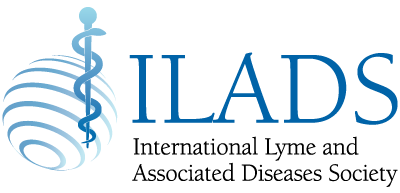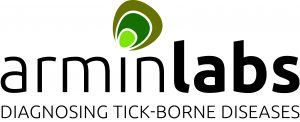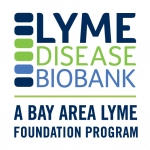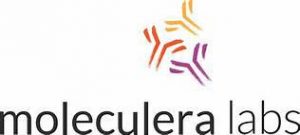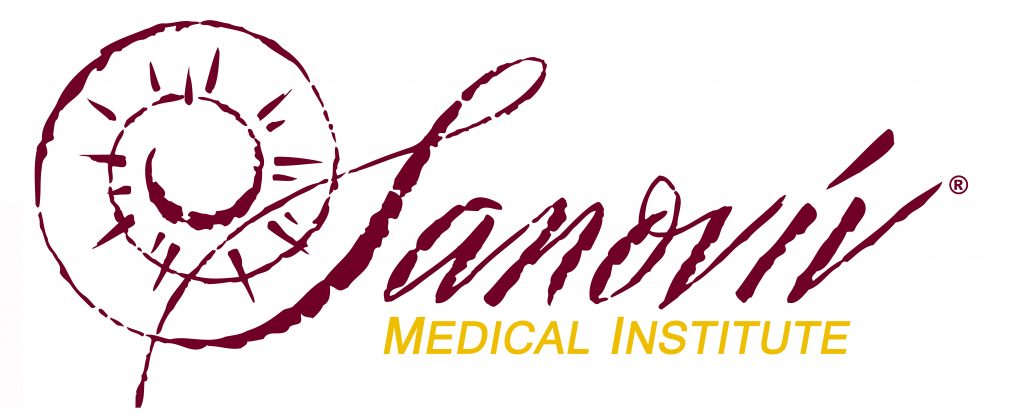
Video recordings from the 2022 Annual Scientific Conference and the Vector-Borne Illness Fundamentals are available for sale on our Learning Management System (LMS). Click on the links below for more information.
View 2022 Annual Conference Videos
View 2022 Vector-Borne Illness Fundamentals Course
Thanks for making the ILADS 23rd Annual Scientific Conference a success. Save the date for next year's conference, October 19-22, 2023 in Boston at the Westin Boston Seaport District.
The mission of ILADS is to educate healthcare professionals about the appropriate diagnosis and treatment of tick-borne diseases. The Annual Scientific Conference is intended for medical professionals including MDs, DOs, NDs, PAs, NPs, RNs, LCSWs, DCs, PhDs, psychologists, and other professionals assisting Lyme and related disease patients.
Continuing Medical Education (CME)
Vector-Borne Illness Fundamentals
The AAFP has reviewed Vector-Borne Illness Fundamentals (2022) and deemed it acceptable for up to 7.25 Live AAFP Prescribed credits. Term of Approval is from 09/22/2022 to 09/22/2022. Physicians should claim only the credit commensurate with the extent of their participation in the activity.
Annual Scientific Conference
The AAFP has reviewed ILADS 2022 Annual Scientific Conference: Debugging the Body and Brain and deemed it acceptable for up to 5.00 Live AAFP Prescribed credits. Term of Approval is from 09/22/2022 to 09/25/2022. Physicians should claim only the credit commensurate with the extent of their participation in the activity.
AMA/AAFP Equivalency
AAFP Prescribed credit is accepted by the American Medical Association as equivalent to AMA PRA Category 1 credit(s)™ toward the AMA Physician's Recognition Award. When applying for the AMA PRA, Prescribed credit earned must be reported as Prescribed, not as Category 1.
For assistance claiming CME credit for the 2022 conference please email conference@ilads.org
Scientific Program Schedule
Full Conference Schedule
Thursday, September 22, 2022
Innovations In Medicine
| Time | Session Topic/Title | Speaker | ||
|---|---|---|---|---|
| 7-7:45 AM | Reflections from ILADS Past Presidents | Andrea Gaito, MD; Leo J. Shea, III, PhD; Robert C. Bransfield, MD; Daniel J. Cameron, MD, MPH, Samuel M. Shor, MD | ||
| 8 AM-5 PM | Vector-Borne Illness Fundamentals | Click Here for Schedule | ||
| 8-8:05 AM | Welcome Remarks/Moderator | Steven J. Bock, MD | ||
| 8:05-8:45 AM | Neurological Traumatic Brain Injury in Tick-Borne Disease Patients | Chad J. Prusmack, MD | ||
| 8:45-9:15 AM | Improving the Accuracy and Clinical Utility of Diagnostic Tests for Lyme Borreliosis | Holly Ahern, MS, BS MT(ASCP) | ||
| 9:15-10 AM | Advanced Review: Diagnosis and Management of Bartonella Persistent Infection and Related Encephalopathy | B. Robert Mozayeni, MD | ||
| 10-10:30 AM | A Direct Test for Tick Borne Illnesses In Urine: Clinical Validation, Functional Information, and Future Perspectives | Alessandra Luchini, PhD | ||
| 10:30-11 AM | Break/Poster Viewing/Exhibit Hall | |||
| 11-11:30 AM | Dual Action of Azlocillin as an Anti-Inflammatory and Anti-Persister Drug for the Treatment of Acute and Persistent Lyme Disease | Jayakumar Rajadas, PhD | ||
| 11:30 AM-12:15 PM | I Dream of GENIE | Scott W. McMahon, MD | ||
| 12:15-3:00 PM | Lunch and Break/Poster Viewing/Exhibit Hall | |||
| Breakout #1 - Professional Development | ||||
| 3-3:30 PM | Building a Focused Practice: Vector-Borne and Chronic Complex Illnesses | Casey S. Kelley, MD | ||
| 3:30-4:20 PM | Effective Communication Techniques for Patients and Professionals | Leo J. Shea, III, PhD | ||
| 4:20-4:40 PM | How to Write an Abstract | Leona Gilbert, PhD | ||
| 4:40-5:10 PM | Post COVID Regulatory Issues – The Usual Suspects and Back to Basics | Jacques G. Simon, ESQ | ||
| 5:30-6:30 PM | Welcome Reception | |||
| Breakout #2 - Laboratory Testing | ||||
| 3-3:15 PM | Infectolab Americas | Felix Scholz, PhD | ||
| 3:15-3:30 PM | Armin Labs | Armin Schwarzbach, MD, PhD | ||
| 3:30-3:45 PM | R.E.D. Labs | Tatjana Mijatovic, PhD | ||
| 3:45-4 PM | IGeneX | Jyotsna Shah, PhD | ||
| 4-4:15 PM | Moleculara Labs | Craig Shimasaki, PhD | ||
| 4:15-4:30 PM | Vibrant Labs | John Rajasekaran, PhD | ||
| 4:30-4:45 PM | Drexel University | Garth Ehrlich, PhD | ||
| 5:30-6:30 PM | Welcome Reception | |||
Friday, September 23, 2022
Friday 9/23
| Time | Session Topic/Title | Speaker | ||
|---|---|---|---|---|
| 7-7:45 AM | Sponsored Presentation: Effectiveness of a Liposomal Antimicrobial Botanical Formula (LABF) in Treating MARCoNS, Bacteria, Yeasts and Molds in Nares Culture in an Inhibition Assay (Sponsored by Biocidin) | Shawn M. Manske, ND | ||
| 8-8:05 AM | Welcome Remarks/Moderator | Garth Ehrlich, PhD | ||
| 8:05-8:50 AM | Pathogenesis of Chronic Inflammatory Conditions Including Post-Treatment Lyme | Bruce K. Patterson, MD | ||
| 8:50-9:30 AM | SARS-CoV-2 Infection of the Nasal Epithelium | Noam Cohen, MD, PhD | ||
| 9:30-10 AM | The Role of Vitamin D in Immunity and Inflammation | Gill Diamond, PhD | ||
| 10-10:30 AM | Break/Poster Viewing/Exhibit Hall | |||
| 10:30-11:10 AM | How Infections Such as Borrelia and Strep can Stimulate Self-reactive Autoimmune Antibodies | Craig Shimasaki, PhD | ||
| 11:10-11:50 AM | Treating Autoimmune Encephalitis and Neuronitis Associated with Lyme Disease (AENDAL) – Intravenous Immunoglobulins (IVIg), Benzathine Penicillin and More | Amiram Katz, MD | ||
| 11:50 AM-12:30 PM | Is Post-Treatment Lyme Disease an Autoimmune Encephalopathy of Infectious Etiology, Persistence of Bugs or Both? | Gary Kaplan, DO | ||
| 12:30-3 PM | Lunch and Break/Poster Viewing/Exhibit Hall | |||
| Breakout #1 - Tantrums and Ticks - It's Not Always What it Seems | ||||
| 3-3:30 PM | Maternal Fetal Transmission | Rita Rhoads, CNM, NP, MPH | ||
| 3:30-4:10 PM | Case Examples of Psychiatric Disorders in Youth: When to Include Testing for Tick-Borne Diseases | Rosalie Greenberg, MD | ||
| 4:10-4:55 PM | The Impact of Adverse Childhood Events, PTSD and the Risk of Developing Immune Mediated Disease | Robert C. Bransfield, MD | ||
| 4:55-5:15 PM | Practical Educational Recommendations for Students with TBDs | Leo J. Shea, III, PhD | ||
| Breakout #2 - Trends and Treatments | ||||
| 3-3:30 PM | Long-COVID as a Model for Chronic Immune Activation Disorders | James R. Neuenschwander, MD | ||
| 3:30-3:55 PM | Cerebrolysin as Neuronal Repairment in Patients with Chronic Neuroboreliosis | Magdalena A. Cubala-Kucharska, MD, PhD | ||
| 3:55-4:25 PM | Immunoglobulin N-glycosylation Discriminates Acute Lyme disease from Endemic Healthy Controls and Mimic Diseases – A Novel Diagnostic and Prognostic | Ben Haslund-Gourley, MD/PhD Candidate | ||
| 4:25-4:50 PM | Disulfiram Therapy Against Persistent Lyme Disease | Jayakumar Rajadas, PhD | ||
| 4:50-5:15 PM | Year in Review of Tick-Borne Diseases: Emerging Trends in Borrelia, Babesia and Arbovirus Research | Leona Gilbert, PhD | ||
Saturday, September 24, 2022
Saturday - 9/24
| Time | Session Topic/Title | Speaker |
|---|---|---|
| 7-7:45 AM | Sponsored Presentation: Advances in Tickborne Testing Technology (Sponsored by Vibrant America Laboratory) | Kim Bruno, DC, CCN |
| 7-7:45 AM | Sponsored Presentation: Integrating Pharmaceuticals & Nutritionals to Optimize TBD Patient Outcome (Sponsored by Researched Nutritionals) | Joseph J. Burrascano, Jr., MD |
| 8-8:05 AM | Welcome Remarks/Moderator | Christine Saba, MD |
| 8:05-8:45 AM | Understanding Peripheral Neuropathy in Vector-Borne Illness | Marna E. Ericson, PhD |
| 8:45-9:20 AM | MCAS and Vector-Borne Infections: Root Cause vs. Driver of the Pentad of Chronic Illness | Tania T. Dempsey, MD |
| 9:20-10 AM | Microbiome Basics: Is Lyme Disease Caused by the Presence of a Microbe, Damages from That Microbe or Damages From Over-Treatment | Sabine S. Hazan, MD |
| 10-10:30 AM | Break/Poster Viewing/Exhibit Hall | |
| 10:30-11:15 AM | Do Antibiotic-Resistant Bacteria Strains in the Gut Impact the Treatment of Lyme and Complex Disease? | Magdalena A. Cubala-Kucharska, MD, PhD |
| 11:15 AM-12 PM | Construction of a Dual Borrelia/Borreliella Genera Pangenome for Diagnostics and Therapeutics | Kayla Soccaras, MS |
| 12-3 PM | Lunch and Break/Poster Viewing/Exhibit Hall | |
| 12-1:30 PM | Annual Members Meeting Lunch | |
| 3-3:30 PM | Mold Mycotoxins: Their Role in Neurological Problems – How To Diagnose And How To Treat | Omar Morales, MD |
| 3:30-4 PM | Neuroquant® and Biomarker Data in Brain Injury and Biotoxin Exposure | Jacquelyn Meinhardt, DNP, FNP |
| 4-4:30 PM | Herbal Support for Management of Vector-Borne Disease | Myriah W. Hinchey, ND |
| 4:30-5:15 PM | Treatment of Chronic Inflammatory Conditions Including Post-Treatment Lyme | Bruce K. Patterson, MD |
Sunday, September 25, 2022
Sunday - 9/25
| Time | Session Topic/Title | Speaker |
|---|---|---|
| 8-8:05 AM | Welcome Remarks/Moderator | Amy Offutt, MD |
| 8:05-8:45 AM | Encephalitis Caused by Chronic Bartonellosis and Babesiosis | Henry H. Lindner, MD |
| 8:45-9:15 AM | Persistent Lyme or Tick-Borne Relapsing Fever - Could We Be Studying the Wrong Infection? | Hope A. McIntyre, MD |
| 9:15-9:55 AM | Botanical Medicine and Vector-Borne Disease: From Roots To Reason | Cheryl Burdette, ND |
| 9:55-10:10 AM | Break | |
| 10:10-10:50 AM | A Fatal Case Report of Lyme Disease, Associated with Substance Abuse | Robert C. Bransfield, MD |
| 10:50-11:30 AM | Nutritional Management of Lyme-Associated Inflammation: A Comprehensive, Evidence-Based Approach | DeAnna Nara, PhD, MSc |
| 11:30 AM-12:15 PM | Compromise to the Neurology of the Visual Process Caused by Lyme disease | William V. Padula, OD, SFNAP, FAAO, FNORA |
Speakers and Poster Presenters
2022 ILADS Annual Scientific Conference
Holly Ahern, MS, MT(ASCP)
Holly Ahern, MS, BS MT(ASCP) is Associate Professor of Microbiology at SUNY Adirondack, where she teaches laboratory courses in Microbiology and Human Anatomy and Physiology, and mentors undergraduate research students. She is the author of nationally published textbooks, including the first microbiology laboratory textbook available as an open educational resource (OER). As a result of her family’s experience with Lyme disease, Ahern co-founded and is vice-president of the NYS-based 501-c-3 advocacy organization Lyme Action Network, and additionally serves as Scientific Advisor for Focus on Lyme Foundation in Arizona. As a scientist and advocate, Ahern has served on subcommittees of the US Department of Health and Human Services (HHS) Tickborne Disease Working Group in 2018 and 2022, and has accepted a commission to serve on the New York State Lyme and Tickborne Disease Working Group in 2022.
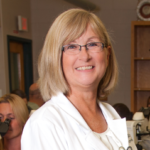
Holly Ahern, MS, MT(ASCP)
Holly Ahern, MS, BS MT(ASCP) is Associate Professor of Microbiology at SUNY Adirondack, where she teaches laboratory courses in Microbiology and Human Anatomy and Physiology, and mentors undergraduate research students. She is the author of nationally published textbooks, including the first microbiology laboratory textbook available as an open educational resource (OER). As a result of her family’s experience with Lyme disease, Ahern co-founded and is vice-president of the NYS-based 501-c-3 advocacy organization Lyme Action Network, and additionally serves as Scientific Advisor for Focus on Lyme Foundation in Arizona. As a scientist and advocate, Ahern has served on subcommittees of the US Department of Health and Human Services (HHS) Tickborne Disease Working Group in 2018 and 2022, and has accepted a commission to serve on the New York State Lyme and Tickborne Disease Working Group in 2022.
Robert C. Bransfield, MD
Dr. Robert C. Bransfield, MD, DLFAPA is a graduate of Rutgers College and the George Washington University School of Medicine. He completed his psychiatric residency training at Sheppard and Enoch Pratt Hospital, is board certified by the American Board of Psychiatry and Neurology in Psychiatry and is a Distinguished Life Fellow of the American Psychiatric Association. Dr. Bransfield’s primary activity is an office based private practice of psychiatry. In addition, Dr Bransfield is the Past President of ILADS, the International Lyme and Associated Diseases Educational Foundation and the New Jersey Psychiatric Association. He has held a number of administrative positions with organizations involved with health, mental health and community related activities. He is a Clinical Associate Professor of Psychiatry at Rutgers—Robert Wood Johnson Medical School. Dr Bransfield has authored and co-authored a number of publications in peer-reviewed literature, other medical publications and books; has been active in political advocacy on an international, national, state and local level.
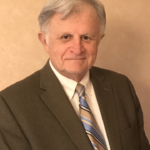
Robert C. Bransfield, MD
Dr. Robert C. Bransfield, MD, DLFAPA is a graduate of Rutgers College and the George Washington University School of Medicine. He completed his psychiatric residency training at Sheppard and Enoch Pratt Hospital, is board certified by the American Board of Psychiatry and Neurology in Psychiatry and is a Distinguished Life Fellow of the American Psychiatric Association. Dr. Bransfield’s primary activity is an office based private practice of psychiatry. In addition, Dr Bransfield is the Past President of ILADS, the International Lyme and Associated Diseases Educational Foundation and the New Jersey Psychiatric Association. He has held a number of administrative positions with organizations involved with health, mental health and community related activities. He is a Clinical Associate Professor of Psychiatry at Rutgers—Robert Wood Johnson Medical School. Dr Bransfield has authored and co-authored a number of publications in peer-reviewed literature, other medical publications and books; has been active in political advocacy on an international, national, state and local level.
Cheryl Burdette, ND
Cheryl Burdette, N.D. is the Founder of PersonalogiX Health Academy, and Educational Initiative designed to increase knowledge of integrative medicine for practitioners. She is the Director of Education and the Naturopathic Residency program at Progressive Medical. She is the founder and Educational Director of a functional laboratory, Precision Point Diagnostics, for which she designs clinical profiles and trains clinicians with utilization. She is on the board of advisors for Xymogen, an Inc.500 supplement company. She is a partner in TheraDura, a physician line distribution in Germany. She serves on IRB boards, is involved in study design and translational research, and has lectured extensively worldwide. Her passion is teaching around the practices of Integrated and Naturoathic Medicine, to increase awareness of evidenced-based natural therapies.

Cheryl Burdette, ND
Cheryl Burdette, N.D. is the Founder of PersonalogiX Health Academy, and Educational Initiative designed to increase knowledge of integrative medicine for practitioners. She is the Director of Education and the Naturopathic Residency program at Progressive Medical. She is the founder and Educational Director of a functional laboratory, Precision Point Diagnostics, for which she designs clinical profiles and trains clinicians with utilization. She is on the board of advisors for Xymogen, an Inc.500 supplement company. She is a partner in TheraDura, a physician line distribution in Germany. She serves on IRB boards, is involved in study design and translational research, and has lectured extensively worldwide. Her passion is teaching around the practices of Integrated and Naturoathic Medicine, to increase awareness of evidenced-based natural therapies.
Noam Cohen, MD, PhD
Dr. Noam Cohen is the Ralph Butler Professor of Otorhinolaryngology – Head and Neck Surgery and Director of Rhinology Research at The Perelman School of Medicine at The University of Pennsylvania. Additionally, he is an Adjunct Member of The Monell Chemical Senses Center and a Staff Surgeon at the Philadelphia VA Medical Center. He obtained his medical degree and doctorate degree in Neuroscience from the The Johns Hopkins University School of Medicine in 1998 and completed his General Surgery Internship as well as his Otorhinolaryngology Residency (2003) and Rhinology and Skull Base Surgery Fellowship (2004) at The University of Pennsylvania. His research interests include host-microbe interactions in the upper airway with a focus on sinonasal innate defenses focusing on airway taste receptors and mucociliary clearance, microbial biofilms, solitary chemosensory cells, and the development of novel sinonasal topical antimicrobial therapies. At the beginning of the COVID-19 pandemic his focus switched to coronavirus infections of human nasal epithelial cells using many of the established techniques in the lab. He has authored over 200 publications, given multiple presentations around the world and has been principal investigator on NIH and VA grants as well as Industry-sponsored studies.
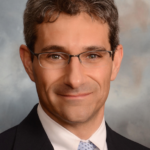
Noam Cohen, MD, PhD
Dr. Noam Cohen is the Ralph Butler Professor of Otorhinolaryngology – Head and Neck Surgery and Director of Rhinology Research at The Perelman School of Medicine at The University of Pennsylvania. Additionally, he is an Adjunct Member of The Monell Chemical Senses Center and a Staff Surgeon at the Philadelphia VA Medical Center. He obtained his medical degree and doctorate degree in Neuroscience from the The Johns Hopkins University School of Medicine in 1998 and completed his General Surgery Internship as well as his Otorhinolaryngology Residency (2003) and Rhinology and Skull Base Surgery Fellowship (2004) at The University of Pennsylvania. His research interests include host-microbe interactions in the upper airway with a focus on sinonasal innate defenses focusing on airway taste receptors and mucociliary clearance, microbial biofilms, solitary chemosensory cells, and the development of novel sinonasal topical antimicrobial therapies. At the beginning of the COVID-19 pandemic his focus switched to coronavirus infections of human nasal epithelial cells using many of the established techniques in the lab. He has authored over 200 publications, given multiple presentations around the world and has been principal investigator on NIH and VA grants as well as Industry-sponsored studies.
Eboni Cornish, MD
Dr. Eboni Cornish is an integrative/functional medicine physician based in Northern Virginia. She has a special interest in infectious diseases at the Amen Clinics. Dr. Cornish’s approach to the treatment of chronic tick borne disease is to find the root cause of a person’s health problems by performing a comprehensive evaluation of the body’s various biological systems and taking an approach based on integrative strategies of healing. Due to her passion of solving problems with neurological infections, she was trained in SPECT scan brain imaging. This has allowed her to further assist her chronic patient population. She is Secretary of the board of the International Lyme and Associated Diseases Educational Foundation which is responsible for training numerous physicians on the treatment of Lyme Disease and co-infections. She was recently awarded in 2021 the Northern Virginia Top Doctor Award in functional medicine.

Eboni Cornish, MD
Dr. Eboni Cornish is an integrative/functional medicine physician based in Northern Virginia. She has a special interest in infectious diseases at the Amen Clinics. Dr. Cornish’s approach to the treatment of chronic tick borne disease is to find the root cause of a person’s health problems by performing a comprehensive evaluation of the body’s various biological systems and taking an approach based on integrative strategies of healing. Due to her passion of solving problems with neurological infections, she was trained in SPECT scan brain imaging. This has allowed her to further assist her chronic patient population. She is Secretary of the board of the International Lyme and Associated Diseases Educational Foundation which is responsible for training numerous physicians on the treatment of Lyme Disease and co-infections. She was recently awarded in 2021 the Northern Virginia Top Doctor Award in functional medicine.
Magdalena A. Cubala-Kurcharska, MD, PhD
Dr. Cubala-Kucharska is Director of Arcana Institute of Integrative Medicine Poland. Dr. Cubala-Kucharska developed an interest in autism spectrum disorder (ASD) in 2004, which led her to research co-morbidities in autistic patients, including Lyme disease. She has consulted for the Council of Natural Therapies in the Polish Ministry of Health, and at the Autism Treatment Trust in Edinburgh. Her practice is focused on ASD, tick-borne, autoimmune and environmental diseases. Her research, conducted in affiliation with the Medical University of Lodz and published in peer-reviewed journals, is in the field of autism and tick-borne infections.

Magdalena A. Cubala-Kurcharska, MD, PhD
Dr. Cubala-Kucharska is Director of Arcana Institute of Integrative Medicine Poland. Dr. Cubala-Kucharska developed an interest in autism spectrum disorder (ASD) in 2004, which led her to research co-morbidities in autistic patients, including Lyme disease. She has consulted for the Council of Natural Therapies in the Polish Ministry of Health, and at the Autism Treatment Trust in Edinburgh. Her practice is focused on ASD, tick-borne, autoimmune and environmental diseases. Her research, conducted in affiliation with the Medical University of Lodz and published in peer-reviewed journals, is in the field of autism and tick-borne infections.
Tania T. Dempsey, MD
Dr. Tania Dempsey, MD, ABIHM is Board-Certified in Internal Medicine and Integrative and Holistic Medicine. She received her MD degree from The Johns Hopkins University School of Medicine and her BS degree from Cornell University. She completed her Internal Medicine Residency at New York University Medical Center. In 2011, she founded Armonk Integrative Medicine (AIM) which has evolved into the AIM Center for Personalized Medicine, a destination practice in Purchase, NY, focusing on complex, multi-system diseases. Dr. Dempsey is an expert in Mast Cell Activation Syndrome, Dysautonomia, ME/CFS, Tick-Borne Infections and Autoimmunity. She is a member of the U.S. ME/CFS Clinician Coalition and ILADS. She is an accomplished international speaker and writer. She is the co-author of the chapter on “Urogynecology and Hypermobility” in the 2020 book, Disjointed Navigating the Diagnosis and Management of hypermobile Ehlers-Danlos Syndrome and Hypermobility Spectrum Disorders. She is a co-author on several recently published ground-breaking articles in the medical literature: “Diagnosis of mast cell activation syndrome: a global "consensus-2", “Post-HPV-VaccinationMast Cell Activation Syndrome: Possible Vaccine-Triggered Escalation of Undiagnosed Pre-Existing Mast Cell Disease?” , “Successful treatment of chronic dyspareunia, vaginitis, and dysfunctional uterine bleeding" and "Mast cell activation may explain many cases of chemical intolerance".
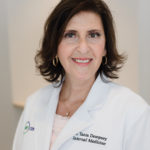
Tania T. Dempsey, MD
Dr. Tania Dempsey, MD, ABIHM is Board-Certified in Internal Medicine and Integrative and Holistic Medicine. She received her MD degree from The Johns Hopkins University School of Medicine and her BS degree from Cornell University. She completed her Internal Medicine Residency at New York University Medical Center. In 2011, she founded Armonk Integrative Medicine (AIM) which has evolved into the AIM Center for Personalized Medicine, a destination practice in Purchase, NY, focusing on complex, multi-system diseases. Dr. Dempsey is an expert in Mast Cell Activation Syndrome, Dysautonomia, ME/CFS, Tick-Borne Infections and Autoimmunity. She is a member of the U.S. ME/CFS Clinician Coalition and ILADS. She is an accomplished international speaker and writer. She is the co-author of the chapter on “Urogynecology and Hypermobility” in the 2020 book, Disjointed Navigating the Diagnosis and Management of hypermobile Ehlers-Danlos Syndrome and Hypermobility Spectrum Disorders. She is a co-author on several recently published ground-breaking articles in the medical literature: “Diagnosis of mast cell activation syndrome: a global "consensus-2", “Post-HPV-VaccinationMast Cell Activation Syndrome: Possible Vaccine-Triggered Escalation of Undiagnosed Pre-Existing Mast Cell Disease?” , “Successful treatment of chronic dyspareunia, vaginitis, and dysfunctional uterine bleeding" and "Mast cell activation may explain many cases of chemical intolerance".
Gill Diamond, PhD
A native of Philadelphia, PA, I received my BA in Biochemistry from the University of Pennsylvania, and my PhD in Genetics from the Hebrew University of Jerusalem. I then returned to Philadelphia to do postdoctoral research at the Children’s Hospital of Philadelphia, where I began to work on antimicrobial peptides. I was a faculty member at the University of Medicine and Dentistry of New Jersey (now part of Rutgers University) from 1993-2013, and the University of Florida from 2013-2019. Since then, I have been a professor in the Department of Oral Immunology and Infectious Diseases at the University of Louisville School of Dentistry, where I study innate immunity and the development of novel antimicrobial agents.
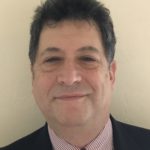
Gill Diamond, PhD
A native of Philadelphia, PA, I received my BA in Biochemistry from the University of Pennsylvania, and my PhD in Genetics from the Hebrew University of Jerusalem. I then returned to Philadelphia to do postdoctoral research at the Children’s Hospital of Philadelphia, where I began to work on antimicrobial peptides. I was a faculty member at the University of Medicine and Dentistry of New Jersey (now part of Rutgers University) from 1993-2013, and the University of Florida from 2013-2019. Since then, I have been a professor in the Department of Oral Immunology and Infectious Diseases at the University of Louisville School of Dentistry, where I study innate immunity and the development of novel antimicrobial agents.
Marna E. Ericson, PhD
Marna Ericson, PhD, is Director of Research at TLAB, Inc., in Gaithersburg, MD, a medical diagnostic lab using an extraordinary new level of molecular microscopy to detect vector-borne pathogens in blood and skin and resulting disease pathology. Her goal is to decipher the complex nature of inflammatory diseases including vector-borne diseases and co-morbidities. She was formerly director of the Cutaneous Imaging Lab in the Department of Dermatology at the University of Minnesota, assistant professor for 15 years. Currently, she is also a fellow at the Thought Leadership & Innovation Foundation and an Adjunct Faculty at the Hormel Institute, University of Minnesota. Dr. Ericson has 25+ years of experience in imaging and quantifying biomarkers in skin and other organs. She specializes in imaging techniques including: multi-photon laser scanning microscopy, second harmonic generation, correlative microscopy, TEM and SEM, live imaging, and super-resolution microscopy. laser scanning microscopy and 3-dimensional analysis.

Marna E. Ericson, PhD
Marna Ericson, PhD, is Director of Research at TLAB, Inc., in Gaithersburg, MD, a medical diagnostic lab using an extraordinary new level of molecular microscopy to detect vector-borne pathogens in blood and skin and resulting disease pathology. Her goal is to decipher the complex nature of inflammatory diseases including vector-borne diseases and co-morbidities. She was formerly director of the Cutaneous Imaging Lab in the Department of Dermatology at the University of Minnesota, assistant professor for 15 years. Currently, she is also a fellow at the Thought Leadership & Innovation Foundation and an Adjunct Faculty at the Hormel Institute, University of Minnesota. Dr. Ericson has 25+ years of experience in imaging and quantifying biomarkers in skin and other organs. She specializes in imaging techniques including: multi-photon laser scanning microscopy, second harmonic generation, correlative microscopy, TEM and SEM, live imaging, and super-resolution microscopy. laser scanning microscopy and 3-dimensional analysis.
Leona Gilbert, PhD
Dr. Leona Gilbert is a Docent of Cell and Molecular Biology and the CEO of Te?ted Oy, a university spinoff company that has a goal to get the patient tested so they can be treated and recover more quickly. She has a doctorate in biotechnology and much experience in bio-innovation and bio-business. She has supervised numerous PhD, MSc and BSc students and her various peer-reviewed articles span turning research results into translational value with developing novel delivery vectors as well as diagnostic lab-on-chip platforms. In addition, Gilbert’s publications also demonstrate the thorough investigation of how a common virus or bacterium can contribute to autoimmune diseases. Another highlight in these publications is the demonstration of a multi-disciplinary background and collaborative efforts between clinicians, microbiologists, diagnostic developers, nano-scientists, physicists and engineers. Gilbert’s research initiatives into complete diagnostic platforms and clinical profiling of patients for tick-borne and autoimmune diseases will allow a better understanding of how chronic conditions could be established with infectious pathogens.

Leona Gilbert, PhD
Dr. Leona Gilbert is a Docent of Cell and Molecular Biology and the CEO of Te?ted Oy, a university spinoff company that has a goal to get the patient tested so they can be treated and recover more quickly. She has a doctorate in biotechnology and much experience in bio-innovation and bio-business. She has supervised numerous PhD, MSc and BSc students and her various peer-reviewed articles span turning research results into translational value with developing novel delivery vectors as well as diagnostic lab-on-chip platforms. In addition, Gilbert’s publications also demonstrate the thorough investigation of how a common virus or bacterium can contribute to autoimmune diseases. Another highlight in these publications is the demonstration of a multi-disciplinary background and collaborative efforts between clinicians, microbiologists, diagnostic developers, nano-scientists, physicists and engineers. Gilbert’s research initiatives into complete diagnostic platforms and clinical profiling of patients for tick-borne and autoimmune diseases will allow a better understanding of how chronic conditions could be established with infectious pathogens.
Rosalie Greenberg, MD
Rosalie Greenberg, MD, FAPA, DFAACAP is Board Certified in General and Child and Adolescent Psychiatry and maintains a private child and adolescent practice in Summit, New Jersey. Dr. Greenberg received her medical degree and completed her general psychiatry residency and child and adolescent fellowship (serving as Chief Resident) at Columbia University’s Vagelos College of Physicians and Surgeons/Columbia University Irving Medical Center where she subsequently served as an Assistant Professor in Clinical Child Psychiatry. She is a Distinguished Fellow of American Academy of Child and Adolescent Psychiatry and a recipient of The NAMI Award for Clinical Excellence in addition to other accolades. Dr. Greenberg is the author of Bipolar Kids: Helping Your Child Find Calm in the Mood Storm, producer of a Telly award winning educational cable television show, as well as author of multiple articles published in the lay press and professional journals. In her private practice and clinical research she specializes in the diagnosis and psychopharmacologic treatment of complex pediatric mood disorders and the role of infections, especially tick-borne associated childhood mental disorders.

Rosalie Greenberg, MD
Rosalie Greenberg, MD, FAPA, DFAACAP is Board Certified in General and Child and Adolescent Psychiatry and maintains a private child and adolescent practice in Summit, New Jersey. Dr. Greenberg received her medical degree and completed her general psychiatry residency and child and adolescent fellowship (serving as Chief Resident) at Columbia University’s Vagelos College of Physicians and Surgeons/Columbia University Irving Medical Center where she subsequently served as an Assistant Professor in Clinical Child Psychiatry. She is a Distinguished Fellow of American Academy of Child and Adolescent Psychiatry and a recipient of The NAMI Award for Clinical Excellence in addition to other accolades. Dr. Greenberg is the author of Bipolar Kids: Helping Your Child Find Calm in the Mood Storm, producer of a Telly award winning educational cable television show, as well as author of multiple articles published in the lay press and professional journals. In her private practice and clinical research she specializes in the diagnosis and psychopharmacologic treatment of complex pediatric mood disorders and the role of infections, especially tick-borne associated childhood mental disorders.
Sabine Hazan, MD
As a specialist in gastroenterology, internal medicine, and hepatology, Dr. Hazan has used her medical expertise in many regards over the last two decades. As the founder & CEO of Progenabiome, a genetic sequencing research laboratory, she leads 35+ studies investigating the role of the gut flora in various diseases (see current list here). Dr. Hazan is also the CEO of Ventura Clinical Trials, where she has 20+ years experience leading clinical trials for cutting-edge research on various medical issues. Since March 2020, she has been at the forefront of COVID-19 research, leading ongoing FDA-approved clinical trials for treatment and prophylaxis (details here). Through their study exploring the role of the gut flora in COVID-19, Progenabiome became the first lab worldwide to detect SARS-CoV-2 from Patient Fecal Samples by Whole Genome Sequencing. See data published in Gut Pathogens and the lab that identified Bifidobacteria as a key lost microbes in severe COVID patients.

Sabine Hazan, MD
As a specialist in gastroenterology, internal medicine, and hepatology, Dr. Hazan has used her medical expertise in many regards over the last two decades. As the founder & CEO of Progenabiome, a genetic sequencing research laboratory, she leads 35+ studies investigating the role of the gut flora in various diseases (see current list here). Dr. Hazan is also the CEO of Ventura Clinical Trials, where she has 20+ years experience leading clinical trials for cutting-edge research on various medical issues. Since March 2020, she has been at the forefront of COVID-19 research, leading ongoing FDA-approved clinical trials for treatment and prophylaxis (details here). Through their study exploring the role of the gut flora in COVID-19, Progenabiome became the first lab worldwide to detect SARS-CoV-2 from Patient Fecal Samples by Whole Genome Sequencing. See data published in Gut Pathogens and the lab that identified Bifidobacteria as a key lost microbes in severe COVID patients.

Ben S. Haslund-Gourley, MD/PhD candidate
Myriah W. Hinchey, ND
Dr. Myriah Hinchey is a Connecticut-licensed naturopathic physician and the founder/medical director of TAO: Center for Vitality, Longevity, & Optimal Health, an integrative medical center for healing located in Hebron, Connecticut.
Following graduation from naturopathic medical school, Dr. Hinchey completed a mentorship with renowned functional medicine pediatrician, Nancy O’Hara, MD, MPH, FAAP. During her time with Dr. O’Hara, she became aware of how frequently Lyme and tick-borne disease are underlying issues for children with ASD and PANS/PANDAS. Later, she herself was diagnosed with multiple tick-borne illnesses, and found herself immersed in the work of Master Herbalist Stephen Buhner. His evidence based herbal approach to healing Lyme disease and co-infections inspired her to correspond with him in developing products and treatment protocols, which ultimately led to the protocols that she used to heal herself and her patients.
Dr. Hinchey has continued to advance her clinical practice by studying under pioneering Lyme physicians Dr. Tom Moorcroft, Dr. Richard Horowitz, and Dr. Neil Nathan; mycotoxin specialist, Dr. Ritchie Shoemaker; and lifestyle and functional medicine doctors, Dr. Mark Hyman and Dr. Jeffrey Bland.
Rooted in functional and naturopathic medicine, Dr. Hinchey shares her unique approach to Lyme and co-infections with other practitioners by lecturing at medical conferences.

Myriah W. Hinchey, ND
Dr. Myriah Hinchey is a Connecticut-licensed naturopathic physician and the founder/medical director of TAO: Center for Vitality, Longevity, & Optimal Health, an integrative medical center for healing located in Hebron, Connecticut.
Following graduation from naturopathic medical school, Dr. Hinchey completed a mentorship with renowned functional medicine pediatrician, Nancy O’Hara, MD, MPH, FAAP. During her time with Dr. O’Hara, she became aware of how frequently Lyme and tick-borne disease are underlying issues for children with ASD and PANS/PANDAS. Later, she herself was diagnosed with multiple tick-borne illnesses, and found herself immersed in the work of Master Herbalist Stephen Buhner. His evidence based herbal approach to healing Lyme disease and co-infections inspired her to correspond with him in developing products and treatment protocols, which ultimately led to the protocols that she used to heal herself and her patients.
Dr. Hinchey has continued to advance her clinical practice by studying under pioneering Lyme physicians Dr. Tom Moorcroft, Dr. Richard Horowitz, and Dr. Neil Nathan; mycotoxin specialist, Dr. Ritchie Shoemaker; and lifestyle and functional medicine doctors, Dr. Mark Hyman and Dr. Jeffrey Bland.
Rooted in functional and naturopathic medicine, Dr. Hinchey shares her unique approach to Lyme and co-infections with other practitioners by lecturing at medical conferences.
Amiram Katz, MD
Dr. Amiram Katz graduated from Sackler School of Medicine in 1976. He served as a physician in the Israeli Navy Special Forces and as the Commanding Officer of the Israeli Navy Hyperbaric and Medical Institute (INHMI).
In 1987 he came to the US to study Epilepsy and Sleep Disorders.
In 2002 Dr. Katz started a solo practice in Orange, CT, where he focuses on the treatment of epilepsy, neuroinflammatory and neurodegenerative conditions, as well as the neurological consequences of Lyme disease. Dr. Katz compiled over a 100 published papers and abstracts in his fields of expertise.
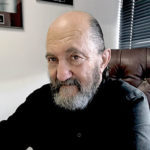
Amiram Katz, MD
TBD
Gary Kaplan, DO
Gary Kaplan, DO, is the founder and medical director of the Kaplan Center for Integrative Medicine. A pioneer and leader in the field of integrative medicine, Dr. Kaplan is one of only 19 physicians in the country to be board-certified in both Family Medicine and Pain Medicine.
Dr. Kaplan is also board-certified in Medical Acupuncture and has studied and practiced Osteopathic Manipulative Medicine, Regenerative Medicine and Emergency Medicine. In response to growing numbers of patients presenting with heavy metal toxicity, Dr. Kaplan received certification in the science and practice of chelation therapy, by The American College for Advancement in Medicine (ACAM).

Gary Kaplan, DO
Gary Kaplan, DO, is the founder and medical director of the Kaplan Center for Integrative Medicine. A pioneer and leader in the field of integrative medicine, Dr. Kaplan is one of only 19 physicians in the country to be board-certified in both Family Medicine and Pain Medicine.
Dr. Kaplan is also board-certified in Medical Acupuncture and has studied and practiced Osteopathic Manipulative Medicine, Regenerative Medicine and Emergency Medicine. In response to growing numbers of patients presenting with heavy metal toxicity, Dr. Kaplan received certification in the science and practice of chelation therapy, by The American College for Advancement in Medicine (ACAM).
Casey Kelley, MD
Board Certified in Family Medicine, Dr. Kelley was among the first physicians to add a board certification in Integrative Medicine as well. She has studied the causes, effects, and treatments of Lyme Disease extensively, and lectures nationally on this and other topics.
Dr. Kelley graduated from The Ohio State University College of Medicine and completed her residency in Family Medicine at St. Joseph Hospital in Chicago. She is a ten-year member of the Institute of Functional Medicine (IFM), the Treasurer of The International Lyme and Associated Disease Society (ILADS), and is a Founding Member of the Academy of Integrative Health and Medicine (AIHM). Dr. Kelley is on the faculty at the Feinberg School of Medicine at Northwestern University.
Prior to founding Case Integrative Health, Dr. Kelley practiced medicine at WholeHealth Chicago, Michigan Avenue Immediate Care, and St. Joseph Hospital.

Casey Kelley, MD
Board Certified in Family Medicine, Dr. Kelley was among the first physicians to add a board certification in Integrative Medicine as well. She has studied the causes, effects, and treatments of Lyme Disease extensively, and lectures nationally on this and other topics.
Dr. Kelley graduated from The Ohio State University College of Medicine and completed her residency in Family Medicine at St. Joseph Hospital in Chicago. She is a ten-year member of the Institute of Functional Medicine (IFM), the Treasurer of The International Lyme and Associated Disease Society (ILADS), and is a Founding Member of the Academy of Integrative Health and Medicine (AIHM). Dr. Kelley is on the faculty at the Feinberg School of Medicine at Northwestern University.
Prior to founding Case Integrative Health, Dr. Kelley practiced medicine at WholeHealth Chicago, Michigan Avenue Immediate Care, and St. Joseph Hospital.
Henry H. Lindner, MD
After graduating from medical school, Dr. Lindner resigned from a psychiatric residency due to his disagreement with the dominant pharmaceutical model. He became a general practitioner and satisfied his intellectual curiosity by studying history, philosophy and physics. He published papers on the philosophical problems in modern physics. In 2004 he was introduced to new ideas in endocrinology and decided to specialize in optimizing hormones lost to aging. When his daughter became disabled by mental/physical fatigue and emotional dysfunction, he eventually discovered that she had chronic babesiosis caused by an organism unknown to human medicine: Babesia odocoilei. He then realized that many of his patients had the same infection. He now has 2 years of experience in diagnosing and treating this infection in scores of patients.
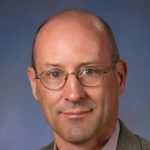
Henry H. Lindner, MD
After graduating from medical school, Dr. Lindner resigned from a psychiatric residency due to his disagreement with the dominant pharmaceutical model. He became a general practitioner and satisfied his intellectual curiosity by studying history, philosophy and physics. He published papers on the philosophical problems in modern physics. In 2004 he was introduced to new ideas in endocrinology and decided to specialize in optimizing hormones lost to aging. When his daughter became disabled by mental/physical fatigue and emotional dysfunction, he eventually discovered that she had chronic babesiosis caused by an organism unknown to human medicine: Babesia odocoilei. He then realized that many of his patients had the same infection. He now has 2 years of experience in diagnosing and treating this infection in scores of patients.
Alessandra Luchini, PhD
Alessandra Luchini is Director of the Biosciences PhD program and Professor with tenure at George Mason University. Her research interests are focused on developing technologies that improve current diagnostics and therapeutics for diseases including cancer, inflammatory and infectious diseases. Dr. Luchini authored peer reviewed publications in scientific journals in chemistry, nanotechnology and proteomics and is co-inventor in a series of issued and licensed patents covering her Mason nanotechnology research. Dr. Luchini is co-founder of Ceres Nanosciences Inc., which was created in 2008, and Monet Pharmaceuticals, created in 2020. In 2011 Dr. Luchini was named as one of the top 10 most brilliant scientists by Popular Science. Dr. Luchini earned a degree in Chemical Engineering cum laude and a PhD in Bioengineering both at the University of Padova, Padova, Italy.
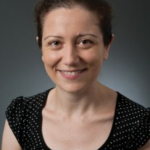
Alessandra Luchini, PhD
Alessandra Luchini is Director of the Biosciences PhD program and Professor with tenure at George Mason University. Her research interests are focused on developing technologies that improve current diagnostics and therapeutics for diseases including cancer, inflammatory and infectious diseases. Dr. Luchini authored peer reviewed publications in scientific journals in chemistry, nanotechnology and proteomics and is co-inventor in a series of issued and licensed patents covering her Mason nanotechnology research. Dr. Luchini is co-founder of Ceres Nanosciences Inc., which was created in 2008, and Monet Pharmaceuticals, created in 2020. In 2011 Dr. Luchini was named as one of the top 10 most brilliant scientists by Popular Science. Dr. Luchini earned a degree in Chemical Engineering cum laude and a PhD in Bioengineering both at the University of Padova, Padova, Italy.
Shawn Manske, ND
Shawn Manske, ND, is the Assistant Director of Clinical Education for Biocidin Botanicals, supporting clinical education, research, and product development. He brings experience in both clinical practice and practitioner education to his role. Dr. Manske grew up in Ontario, Canada, and graduated from the Canadian College of Naturopathic Medicine. He has worked in private clinical practice focusing on GI dysfunction, autoimmune disease, and cardiovascular disease. Based in Western New York, Dr. Manske is also an experienced educator in the botanical supplements industry.
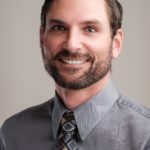
Shawn Manske, ND
Shawn Manske, ND, is the Assistant Director of Clinical Education for Biocidin Botanicals, supporting clinical education, research, and product development. He brings experience in both clinical practice and practitioner education to his role. Dr. Manske grew up in Ontario, Canada, and graduated from the Canadian College of Naturopathic Medicine. He has worked in private clinical practice focusing on GI dysfunction, autoimmune disease, and cardiovascular disease. Based in Western New York, Dr. Manske is also an experienced educator in the botanical supplements industry.
Hope McIntyre, MD
Hope McIntyre MD obtained her bachelors degree in Pre-medicine from the Pennsylvania State University in 1986. She received her MD from Hahnemann University in Philadelphia, Pennsylvania in 1990. After completing a residency in Family Practice at the Harrisburg Family Practice Residency Program, Harrisburg, Pennsylvania she joined Parkview Medical Group in Mount Airy, Maryland in 1994. She remained with that practice until 2010 when she opened her solo practice in Towson, Maryland to focus on tick-borne disease. She moved her Lyme disease practice to Mount Airy, Maryland (her home town) in January of 2017.
She completed two ILADS one week mini-fellowships, the first in 2006 with Dr Ann Corson and a second in 2010 with Dr Charles Ray Jones. As a family physician, Dr McIntyre is trained to treat patients of all ages, but she is especially interested in treating children with Lyme disease who were previously underserved in Maryland.
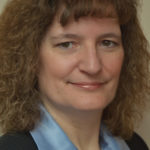
Hope McIntyre, MD
Hope McIntyre MD obtained her bachelors degree in Pre-medicine from the Pennsylvania State University in 1986. She received her MD from Hahnemann University in Philadelphia, Pennsylvania in 1990. After completing a residency in Family Practice at the Harrisburg Family Practice Residency Program, Harrisburg, Pennsylvania she joined Parkview Medical Group in Mount Airy, Maryland in 1994. She remained with that practice until 2010 when she opened her solo practice in Towson, Maryland to focus on tick-borne disease. She moved her Lyme disease practice to Mount Airy, Maryland (her home town) in January of 2017.
She completed two ILADS one week mini-fellowships, the first in 2006 with Dr Ann Corson and a second in 2010 with Dr Charles Ray Jones. As a family physician, Dr McIntyre is trained to treat patients of all ages, but she is especially interested in treating children with Lyme disease who were previously underserved in Maryland.
Scott McMahon, MD
Dr. Scott McMahon graduated from Creighton University School of Medicine and endured his amazing Pediatric Residency at Duke University Medical Center. He has spent nearly 30 years in private practice and devoted the last 12 years to the study and practice of mold-based illnesses. Dr. McMahon has evaluated nearly 2000 pediatric and adult patients for CIRS. He has published 9 peer-reviewed articles, one medical textbook, and 3 consensus statements. His contributions to the field include much of what we understand about pediatric CIRS and recently launched CIRSx.com, an educational website for providers, environmental professionals, and patients alike to access trusted information regarding CIRS.
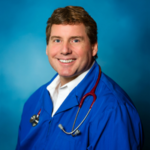
Scott McMahon, MD
Dr. Scott McMahon graduated from Creighton University School of Medicine and endured his amazing Pediatric Residency at Duke University Medical Center. He has spent nearly 30 years in private practice and devoted the last 12 years to the study and practice of mold-based illnesses. Dr. McMahon has evaluated nearly 2000 pediatric and adult patients for CIRS. He has published 9 peer-reviewed articles, one medical textbook, and 3 consensus statements. His contributions to the field include much of what we understand about pediatric CIRS and recently launched CIRSx.com, an educational website for providers, environmental professionals, and patients alike to access trusted information regarding CIRS.
Jacquelyn Meinhardt, DNP, FNP
Dr. Jacki Meinhardt takes an evidence-based approach to functional medicine using cutting-edge advances in science, technology, and personalized precision medicine to help patients heal, thrive, and optimize their human potential.
Dr. Meinhardt earned her Doctor of Nursing Practice (DNP) from Georgetown University in Washington, DC, where her research focused on biotoxin exposure and cognitive impairment. She also has master’s degrees in Nursing/Family Nurse Practitioner from Georgetown University and Integrative Medicine from George Washington University. Jacki is a member of ILADS and a Diplomat with ISEAI. Dr. Meinhardt also holds a faculty appointment at Georgetown University, where she currently teaches biostatistics.

Jacquelyn Meinhardt, DNP, FNP
Dr. Jacki Meinhardt takes an evidence-based approach to functional medicine using cutting-edge advances in science, technology, and personalized precision medicine to help patients heal, thrive, and optimize their human potential.
Dr. Meinhardt earned her Doctor of Nursing Practice (DNP) from Georgetown University in Washington, DC, where her research focused on biotoxin exposure and cognitive impairment. She also has master’s degrees in Nursing/Family Nurse Practitioner from Georgetown University and Integrative Medicine from George Washington University. Jacki is a member of ILADS and a Diplomat with ISEAI. Dr. Meinhardt also holds a faculty appointment at Georgetown University, where she currently teaches biostatistics.
Omar Morales, MD
Dr. Morales developed a special interest in treating tropical diseases with a hematological approach while living in Puerto Vallarta. He is currently an ILADS board member. While dealing with a challenging case of severe Babesia and other co-infections, Dr. Morales was able to utilize his transfusion medicine background and blood bank resources to implement a novel way of treating this particular patient. Red cell exchanges proved to be a successful way of eradicating Babesia. This led Dr. Morales to continue learning and advancing intricate protocols to address Lyme Disease and other co-infections. Dr. Morales continues to be an active researcher of the renowned Biomedical Center de Occidente as well as contributing to publications (both international and national). He strongly believes that with effective medical research and analysis, eventually the majority of the healthcare community will agree that to undertake as big of a challenge as Lyme Disease, a multidisciplinary and integrative approach is the only way.
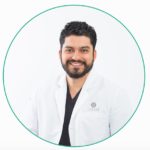
Omar Morales, MD
Dr. Morales developed a special interest in treating tropical diseases with a hematological approach while living in Puerto Vallarta. He is currently an ILADS board member. While dealing with a challenging case of severe Babesia and other co-infections, Dr. Morales was able to utilize his transfusion medicine background and blood bank resources to implement a novel way of treating this particular patient. Red cell exchanges proved to be a successful way of eradicating Babesia. This led Dr. Morales to continue learning and advancing intricate protocols to address Lyme Disease and other co-infections. Dr. Morales continues to be an active researcher of the renowned Biomedical Center de Occidente as well as contributing to publications (both international and national). He strongly believes that with effective medical research and analysis, eventually the majority of the healthcare community will agree that to undertake as big of a challenge as Lyme Disease, a multidisciplinary and integrative approach is the only way.
B. Robert Mozayeni, MD
Dr. Mozayeni was trained in Internal Medicine and Rheumatology at Yale and at NIH. He has had pre- and post-doctoral Fellowships in Molecular Biophysics and Biochemistry at Yale, and also at NIH where he was a Howard Hughes Research Scholar at LMB/DCBD/NCI and later, Senior Staff Fellow at LMMB/NHLBI/NIH. He is an expert in Translational Medicine, the science and art of advancing medical science safely and efficiently. He is a Fellow of the non-profit Think Lead Innovate Foundation and is a co-founder of the Foundation for the Study of Inflammatory Diseases. He is a Founder of the Foundation for the Study of Inflammatory Diseases to crowd-source medical solutions for complex conditions using existing knowledge, diagnostic methods, and therapies to meet patient needs immediately. He is the Chief Medical Officer of Galaxy Diagnostics, LLC. Dr. Mozayeni has held admitting privileges (since 1994) on the clinical staff of Suburban Hospital, a member of Johns Hopkins Medicine and an affiliate of the National Institutes of Health Clinical Center.
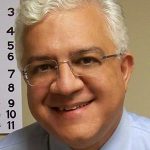
B. Robert Mozayeni, MD
Dr. Mozayeni was trained in Internal Medicine and Rheumatology at Yale and at NIH. He has had pre- and post-doctoral Fellowships in Molecular Biophysics and Biochemistry at Yale, and also at NIH where he was a Howard Hughes Research Scholar at LMB/DCBD/NCI and later, Senior Staff Fellow at LMMB/NHLBI/NIH. He is an expert in Translational Medicine, the science and art of advancing medical science safely and efficiently. He is a Fellow of the non-profit Think Lead Innovate Foundation and is a co-founder of the Foundation for the Study of Inflammatory Diseases. He is a Founder of the Foundation for the Study of Inflammatory Diseases to crowd-source medical solutions for complex conditions using existing knowledge, diagnostic methods, and therapies to meet patient needs immediately. He is the Chief Medical Officer of Galaxy Diagnostics, LLC. Dr. Mozayeni has held admitting privileges (since 1994) on the clinical staff of Suburban Hospital, a member of Johns Hopkins Medicine and an affiliate of the National Institutes of Health Clinical Center.
DeAnna Nara, PhD, MSc, LDN, NU, CNS
Lyme disease is a bacterial infection that presents as a multi systemic inflammatory disease. While targeted antibiotic treatment can help to target these bacteria, they effectively do little to attenuate the inflammatory cascade in both early and late-stage onset of the disease. Lyme associated inflammation is characterized by inflammation of the skin, joints, nervous system, and heart and can severely impact a patient’s quality of life and recovery process. Targeted food and nutrition interventions and consideration of other co-occurring issues—such as food allergies and sensitivities, nutritional deficiencies, and digestive issues, show promise in reducing the burden of inflammation in the body.
Here we will explore evidence based nutritional and lifestyle interventions for managing Lyme-associated inflammation.

DeAnna Nara, PhD, MSc, LDN, NU, CNS
Lyme disease is a bacterial infection that presents as a multi systemic inflammatory disease. While targeted antibiotic treatment can help to target these bacteria, they effectively do little to attenuate the inflammatory cascade in both early and late-stage onset of the disease. Lyme associated inflammation is characterized by inflammation of the skin, joints, nervous system, and heart and can severely impact a patient’s quality of life and recovery process. Targeted food and nutrition interventions and consideration of other co-occurring issues—such as food allergies and sensitivities, nutritional deficiencies, and digestive issues, show promise in reducing the burden of inflammation in the body.
Here we will explore evidence based nutritional and lifestyle interventions for managing Lyme-associated inflammation.
James R. Neuenschwander, MD
James Neuenschwander, MD (aka Dr. Neu) is a graduate of the University of Michigan with both a Bachelor of Science degree in Molecular and Cellular Biology as well as a MD degree. He is dually board certified in both Emergency and Integrative Medicine and has been the owner of the Bio Energy Medical Center (an integrative medical center specializing in chronic illness) since its opening in 1988. He built Bio Energy Medical Center from nothing to a level of success where he has become the doctor to whom other integrative (and some mainstream) practitioners refer their patients. He has continually pursued the notion of remaining up to date on any intervention that might help his patients and on the understanding of why we become ill. Starting in 2007, he began to treat children on the autism spectrum with biomedical approaches. This led him to become involved initially in Defeat Autism Now (DAN) and subsequently the Medical Academy of Pediatric Special Needs (MAPS). He is now conference chairperson of MAPS responsible for the educational content of those conferences. He is a relentless warrior and sought-after speaker on the topics of integrative approaches to chronic disease and biomedical approaches to neurodevelopmental disorders, as well as championing parental choice and medical freedoms.

James R. Neuenschwander, MD
James Neuenschwander, MD (aka Dr. Neu) is a graduate of the University of Michigan with both a Bachelor of Science degree in Molecular and Cellular Biology as well as a MD degree. He is dually board certified in both Emergency and Integrative Medicine and has been the owner of the Bio Energy Medical Center (an integrative medical center specializing in chronic illness) since its opening in 1988. He built Bio Energy Medical Center from nothing to a level of success where he has become the doctor to whom other integrative (and some mainstream) practitioners refer their patients. He has continually pursued the notion of remaining up to date on any intervention that might help his patients and on the understanding of why we become ill. Starting in 2007, he began to treat children on the autism spectrum with biomedical approaches. This led him to become involved initially in Defeat Autism Now (DAN) and subsequently the Medical Academy of Pediatric Special Needs (MAPS). He is now conference chairperson of MAPS responsible for the educational content of those conferences. He is a relentless warrior and sought-after speaker on the topics of integrative approaches to chronic disease and biomedical approaches to neurodevelopmental disorders, as well as championing parental choice and medical freedoms.
Amy Offutt, MD
Dr. Offutt is a member of the ILADS Board of Directors and chair of the ILADS Medical Education Committee. She is also the medical director and co-owner of Heart & Soul Integrative Health and Yoga which she co-founded with her husband, Brad, in 2007, located in Marble Falls, Texas. Her first seven years of practice were focused on rural family medicine and obstetrics after which she transitioned to approach the treatment of chronic inflammatory diseases using integrative medicine. She completed medical school at The University of Texas Health Sciences Center in San Antonio and completed a residency in Family Medicine at Christus Health. She has completed a fellowship with the American Academy of Anti-Aging and Regenerative Medicine and has a Master’s Degree in Integrative Medicine from George Washington University.

Amy Offutt, MD
Dr. Offutt is a member of the ILADS Board of Directors and chair of the ILADS Medical Education Committee. She is also the medical director and co-owner of Heart & Soul Integrative Health and Yoga which she co-founded with her husband, Brad, in 2007, located in Marble Falls, Texas. Her first seven years of practice were focused on rural family medicine and obstetrics after which she transitioned to approach the treatment of chronic inflammatory diseases using integrative medicine. She completed medical school at The University of Texas Health Sciences Center in San Antonio and completed a residency in Family Medicine at Christus Health. She has completed a fellowship with the American Academy of Anti-Aging and Regenerative Medicine and has a Master’s Degree in Integrative Medicine from George Washington University.
William V. Padula, OD, SFNAP, FAAO, FNORA
William V. Padula, OD is Director of the Padula Institute of Vision Rehabilitation in Guilford, CT. He is the Founding President of the Neuro-Optometric Rehabilitation Association (NORA) and Senior Fellow of the National Academy of Practice Dr. Padula is an Associate Professor at Salus University of Health Sciences College of Optometry in Philadelphia, PA and is an Adjunct Professor at Western University of Health Sciences College of Optometry in Los Angeles, CA. He is the Founding Chairperson of the American Optometric Association Vision Rehabilitation Section. Dr. Padula has been a consultant to the National Academy of Sciences Committee of Vision.
Research has been conducted by Dr. Padula discovering Post Trauma Vision Syndrome (PTVS) and Visual Midline Shift Syndrome (VMSS). Dr. Padula has also conducted research on tick (Lyme disease) borne disease and vision dysfunction. Dr. Padula also served as the National Consultant in Low Vision Services for the American Foundation for the Blind and Director of Vision Research to the Gesell Institute of Human Development. He is on staff at Gaylord Hospital in Wallingford, CT and consults with many programs for head-injured persons throughout the United States
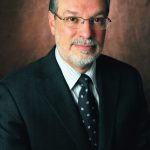
William V. Padula, OD, SFNAP, FAAO, FNORA
William V. Padula, OD is Director of the Padula Institute of Vision Rehabilitation in Guilford, CT. He is the Founding President of the Neuro-Optometric Rehabilitation Association (NORA) and Senior Fellow of the National Academy of Practice Dr. Padula is an Associate Professor at Salus University of Health Sciences College of Optometry in Philadelphia, PA and is an Adjunct Professor at Western University of Health Sciences College of Optometry in Los Angeles, CA. He is the Founding Chairperson of the American Optometric Association Vision Rehabilitation Section. Dr. Padula has been a consultant to the National Academy of Sciences Committee of Vision.
Research has been conducted by Dr. Padula discovering Post Trauma Vision Syndrome (PTVS) and Visual Midline Shift Syndrome (VMSS). Dr. Padula has also conducted research on tick (Lyme disease) borne disease and vision dysfunction. Dr. Padula also served as the National Consultant in Low Vision Services for the American Foundation for the Blind and Director of Vision Research to the Gesell Institute of Human Development. He is on staff at Gaylord Hospital in Wallingford, CT and consults with many programs for head-injured persons throughout the United States.
Bruce K. Patterson, MD
Bruce Patterson, MD, is the CEO of IncellDx and the Chronic Covid Treatment Center, where he is working toward a new paradigm for predicting, identifying and treating long Covid. He previously served as medical director of diagnostic virology at the Stanford University School of Medicine.
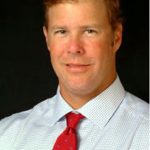
Bruce K. Patterson, MD
Bruce Patterson, MD, is the CEO of IncellDx and the Chronic Covid Treatment Center, where he is working toward a new paradigm for predicting, identifying and treating long Covid. He previously served as medical director of diagnostic virology at the Stanford University School of Medicine.
Chad J. Prusmack, MD, FAANS
Board Certified Neurosurgeon in Denver CO. Independent consultant Dever Broncos and US Olympic Team. Specialize in Minimally invasive spine surgery, Traumatic Brain and Sports Injury and functional medicine. I am certified in functional medicine and am a member of ILADS. I have done apprenticeships with Jill Carnahan, Dan Kinderleher and Richard Horrowitz.
I am also the Founder of a data driven functional medicine center named Resilience Code. We treat central nervous system disorders, chronic injury and invisible illness by applying the principles of functional medicine, allopathic medicine and strength and conditioning. I have had lifelong Lyme disease and have used that experience to research its role in Concussion and chronic immune impairment.
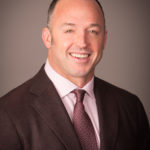
Chad J. Prusmack, MD, FAANS
Board Certified Neurosurgeon in Denver CO. Independent consultant Dever Broncos and US Olympic Team. Specialize in Minimally invasive spine surgery, Traumatic Brain and Sports Injury and functional medicine. I am certified in functional medicine and am a member of ILADS. I have done apprenticeships with Jill Carnahan, Dan Kinderleher and Richard Horrowitz.
I am also the Founder of a data driven functional medicine center named Resilience Code. We treat central nervous system disorders, chronic injury and invisible illness by applying the principles of functional medicine, allopathic medicine and strength and conditioning. I have had lifelong Lyme disease and have used that experience to research its role in Concussion and chronic immune impairment.
Jayakumar Rajadas, PhD
Dr. Rajadas is the author of 238 peer reviewed publications, has developed 82 patents and discovered the therapeutic effects of Disulfiram and Azlocillin for the treatment of persistent Lyme disease. Other projects of his focus use biophysical approaches such as AFM, fluorescence and NMR to work on the molecular mechanisms of protein-initiated neurodegenerative disorders involved in the pathology of Alzheimer’s disease. Furthermore, he is also known for his development of unique and successful implantable biomaterials which are commercially available all over the world. In 1996, Dr. Rajadas won the national best scientist award (Chemistry, India) for the development of preventative and therapeutic molecules in the space of cardiovascular infarcts. By early 2000, Dr. Rajadas developed the eye lens protein alpha b crystallin as a therapeutic for the treatment of multiple sclerosis, which was tested clinically as well. Dr. Rajadas has founded three high activity labs including the ADDReB Laboratory of Cardiovascular Institute at Stanford School of Medicine. He is a trained chemist with a Ph.D. in Biophysical Chemistry.

Jayakumar Rajadas, PhD
Dr. Rajadas is the author of 238 peer reviewed publications, has developed 82 patents and discovered the therapeutic effects of Disulfiram and Azlocillin for the treatment of persistent Lyme disease. Other projects of his focus use biophysical approaches such as AFM, fluorescence and NMR to work on the molecular mechanisms of protein-initiated neurodegenerative disorders involved in the pathology of Alzheimer’s disease. Furthermore, he is also known for his development of unique and successful implantable biomaterials which are commercially available all over the world. In 1996, Dr. Rajadas won the national best scientist award (Chemistry, India) for the development of preventative and therapeutic molecules in the space of cardiovascular infarcts. By early 2000, Dr. Rajadas developed the eye lens protein alpha b crystallin as a therapeutic for the treatment of multiple sclerosis, which was tested clinically as well. Dr. Rajadas has founded three high activity labs including the ADDReB Laboratory of Cardiovascular Institute at Stanford School of Medicine. He is a trained chemist with a Ph.D. in Biophysical Chemistry.
Leo J. Shea, III. PhD
Leo J. Shea III, PhD, is President of Neuropsychological Evaluation and Treatment Services, P.C. with offices in New York City and Quincy, Massachusetts. His practice focuses on neuropsychological evaluation and treatment of tick-borne diseases, disability evaluations, forensic work, family therapy and traumatic brain injury. Dr. Shea is a Senior Staff Psychologist and Clinical Associate Professor of Rehabilitation Medicine at NYU-Langone and formerly was Assistant Director of the NYU Brain Injury Day Treatment Program. Dr. Shea was twice President of ILADS and a member of the board of ILADEF. He is former Chairman of the National Research Fund for tick-borne diseases.

Leo J. Shea, III. PhD
Leo J. Shea III, PhD, is President of Neuropsychological Evaluation and Treatment Services, P.C. with offices in New York City and Quincy, Massachusetts. His practice focuses on neuropsychological evaluation and treatment of tick-borne diseases, disability evaluations, forensic work, family therapy and traumatic brain injury. Dr. Shea is a Senior Staff Psychologist and Clinical Associate Professor of Rehabilitation Medicine at NYU-Langone and formerly was Assistant Director of the NYU Brain Injury Day Treatment Program. Dr. Shea was twice President of ILADS and a member of the board of ILADEF. He is former Chairman of the National Research Fund for tick-borne diseases.
Craig Shimasaki, PhD, MBA
Craig Shimasaki is President and CEO of Moleculera labs, a neuroimmunology precision medicine company focused on identifying underlying roots of neurologic, psychiatric, and behavioral disorders triggered by an autoimmune response. He is a medical research scientist with over 35 years of translational development experience in biochemical interactions, molecular biology, viral pathogenesis and infection-triggered neuropsychiatric disorders.
Dr. Shimasaki has worked at all stages of research and development from bench to bedside. His research included epitope mapping of HIV proteins, genetic based risk predictors of breast cancer, influenza and RSV diagnostics and therapeutics and pathogenesis of infection triggered neuropsychiatric disorders. As a businessperson, he co-founded multiple companies and led multiple products through the FDA approval process and is a co-inventor on multiple patents.
Dr. Shimasaki started his career at Genentech. He received his BS in Biochemistry from University of California at Davis, his PhD in Molecular Biology from the University of Tulsa, and his MBA from Northwestern University, Kellogg School of Business. He an Adjunct Professor at the University of Oklahoma where he teaches biotechnology entrepreneurship. His passion is to help translate scientific and medical discoveries into acutely needed products so that more patients can live healthier lives.
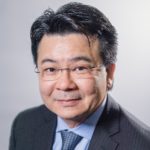
Craig Shimasaki, PhD, MBA
Craig Shimasaki is President and CEO of Moleculera labs, a neuroimmunology precision medicine company focused on identifying underlying roots of neurologic, psychiatric, and behavioral disorders triggered by an autoimmune response. He is a medical research scientist with over 35 years of translational development experience in biochemical interactions, molecular biology, viral pathogenesis and infection-triggered neuropsychiatric disorders.
Dr. Shimasaki has worked at all stages of research and development from bench to bedside. His research included epitope mapping of HIV proteins, genetic based risk predictors of breast cancer, influenza and RSV diagnostics and therapeutics and pathogenesis of infection triggered neuropsychiatric disorders. As a businessperson, he co-founded multiple companies and led multiple products through the FDA approval process and is a co-inventor on multiple patents.
Dr. Shimasaki started his career at Genentech. He received his BS in Biochemistry from University of California at Davis, his PhD in Molecular Biology from the University of Tulsa, and his MBA from Northwestern University, Kellogg School of Business. He an Adjunct Professor at the University of Oklahoma where he teaches biotechnology entrepreneurship. His passion is to help translate scientific and medical discoveries into acutely needed products so that more patients can live healthier lives.
Samuel M. Shor, MD, FACP
Dr. Shor is an Associate Clinical Professor at George Washington University Health Care Sciences. Dr. Shor developed his long-standing interest in chronic fatigue in the late 1980s. He subsequently cultivated an interest in managing associated conditions that ultimately led to his developing an expertise in Lyme disease. Dr. Shor served as President of ILADS from 2016 to 2018. He continues to serve the public as Chair of the Loudoun County Lyme Commission, while actively pursuing clinical activity in the management of complex patients. He also oversees research and contributes to publishing in the peer reviewed literature.
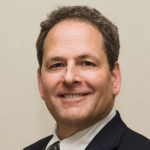
Samuel M. Shor, MD, FACP
Dr. Shor is an Associate Clinical Professor at George Washington University Health Care Sciences. Dr. Shor developed his long-standing interest in chronic fatigue in the late 1980s. He subsequently cultivated an interest in managing associated conditions that ultimately led to his developing an expertise in Lyme disease. Dr. Shor served as President of ILADS from 2016 to 2018. He continues to serve the public as Chair of the Loudoun County Lyme Commission, while actively pursuing clinical activity in the management of complex patients. He also oversees research and contributes to publishing in the peer reviewed literature.
Kayla M. Socarras, MS
Kayla Socarras is a PhD candidate in Dr. Garth Ehrlich’s lab in the Drexel University’s Department of Microbiology & Immunology. Prior to arriving at Drexel, Kayla received her bachelor’s degree from the University of Saint Joseph’s in Biological sciences. Afterward, she received her master’s degree in cellular and molecular biology from the University of New Haven. During her master’s, Kayla participated in several ongoing studies on the pathogenesis of Borrelia burgdorferi, the causative agent of the increasingly prevalent disease known as Lyme borreliosis. For her master’s thesis, Kayla tested several antimicrobials for their efficiency and efficacy as a therapeutic treatment against Borrelia burgdorferi. After completing her master's thesis, Kayla also did a post-graduate research fellowship at the University of New Haven. During her fellowship, she studied the pathogenesis of Borrelia spp in causing Borrelial lymphocytoma, a cutaneous manifestation of Lyme borreliosis.
Currently, at Drexel University College of Medicine, Kayla is continuing her research within the Center for Advanced Microbial Processing and is working on several projects including characterizing the complex dynamics of tick-borne disease microbes within the tick microbiome and constructing a two-tiered diagnostic for Lyme borreliosis.

Kayla M. Socarras, MS
Kayla Socarras is a PhD candidate in Dr. Garth Ehrlich’s lab in the Drexel University’s Department of Microbiology & Immunology. Prior to arriving at Drexel, Kayla received her bachelor’s degree from the University of Saint Joseph’s in Biological sciences. Afterward, she received her master’s degree in cellular and molecular biology from the University of New Haven. During her master’s, Kayla participated in several ongoing studies on the pathogenesis of Borrelia burgdorferi, the causative agent of the increasingly prevalent disease known as Lyme borreliosis. For her master’s thesis, Kayla tested several antimicrobials for their efficiency and efficacy as a therapeutic treatment against Borrelia burgdorferi. After completing her master's thesis, Kayla also did a post-graduate research fellowship at the University of New Haven. During her fellowship, she studied the pathogenesis of Borrelia spp in causing Borrelial lymphocytoma, a cutaneous manifestation of Lyme borreliosis.
Currently, at Drexel University College of Medicine, Kayla is continuing her research within the Center for Advanced Microbial Processing and is working on several projects including characterizing the complex dynamics of tick-borne disease microbes within the tick microbiome and constructing a two-tiered diagnostic for Lyme borreliosis.
Poster Presenters

Domenica K. Favero, PsyD

Sophie Michaud, MD, MPH, CSPQ, FRCPC
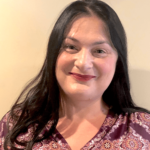
Medeya Tsnobiladze, ND
Vector-Borne Illness Fundamentals
The Vector-Borne Illness (VBI) Fundamentals course is a one-day track for medical professionals new to VBI diagnosis and treatment and for those veterans who want to brush up on their basics.
The VBI Fundamentals course is designed to educate medical professionals on the basics of diagnosing and treating Lyme and tick-borne diseases. The course provides specific step-by-step guidance using lectures, real-world case presentations and interactive discussions. Upon successful completion of the Vector-Borne Illness Fundamentals course and associated quiz, attendees become eligible to participate in the ILADEF Physician Training Program. Completion of the in-person course is also a pre-requisite for becoming an ILADS Lyme Fellow.
In the Physician Training Program, participants shadow a seasoned ILADEF-designated expert in her/his office (or virtually) for one to two weeks, during which time the clinician observes firsthand how doctors come up with their diagnosis and treatment plan. Additionally, clinicians observe how to handle follow-up appointments and all their complexities.
There are a number of grants available to reimburse first-time attending professionals for the VBI Fundamentals registration fee. Click here for grant information or email accounting@ILADS.org to see if you qualify.
Continuing Medical Education (CME) Credit
The AAFP has reviewed Vector-Borne Illness Fundamentals (2022) and deemed it acceptable for up to 7.25 Live AAFP Prescribed credits. Term of Approval is from 09/22/2022 to 09/22/2022. Physicians should claim only the credit commensurate with the extent of their participation in the activity. Click here to view the full program announcement.
AMA/AAFP Equivalency
AAFP Prescribed credit is accepted by the American Medical Association as equivalent to AMA PRA Category 1 credit(s)™ toward the AMA Physician's Recognition Award. When applying for the AMA PRA, Prescribed credit earned must be reported as Prescribed, not as Category 1.
Vector-Borne Illness Fundamentals
| Time | Session Topic/Title | Speaker |
|---|---|---|
| 8:00 AM | Introduction to Vector-Borne Illness Fundamentals | Samuel M. Shor, MD |
| Pathophysiology | Samuel M. Shor, MD | |
| 9:30 AM | Break | |
| 9:45 AM | Introduction to Co-Infections | Amy Offutt, MD |
| Diagnosis and Treatment of Chronic Babesiosis | Joseph J. Burrascano, Jr., MD | |
| Bartonella | Tania Dempsey, MD | |
| Rickettsia | Amy Offutt, MD | |
| Mycoplasma/Chlamydia | Amy Offutt, MD | |
| Tick-borne Relapsing Fever | Amy Offutt, MD | |
| Viral Infection | Amy Offutt, MD | |
| 11:45 PM | Lunch | |
| 12:45 PM | Presentation, Assessment and Psychiatric Manifestations of Tick-borne Disease | Robert C. Bransfield, MD, DLFAPA |
| Pediatric Lyme | Robert C. Bransfield, MD, DLFAPA | |
| 2:00 PM | Break | |
| 2:20 PM | Diagnostic Tools | Joseph J. Burrascano, Jr., MD |
| 2:50 PM | Lyme and Persistent Lyme | Samuel M. Shor, MD |
| 3:50 PM | Break | |
| 4:00 PM | Cases and Questions | Robert C. Bransfield, MD, DLFAPA; Samuel M. Shor, MD |
